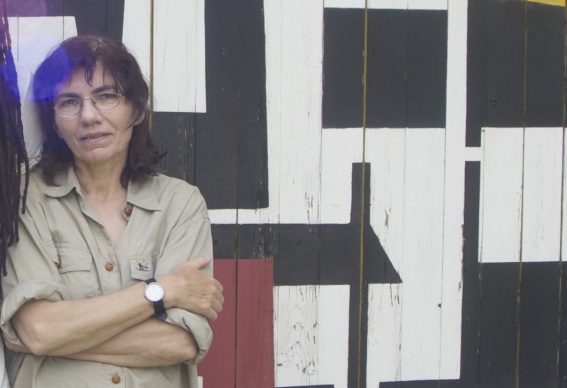
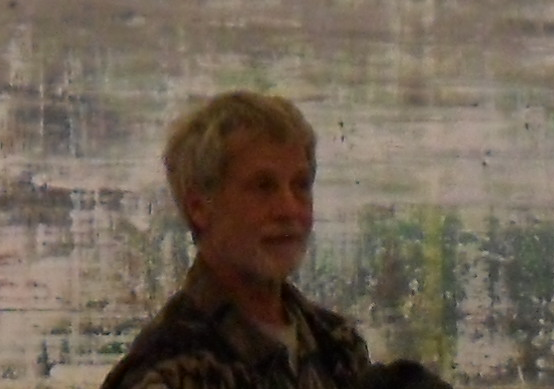
Our society is about to develop an immune system.
(videos und transcripts continuing our 2016 report)
Postscript to 2017


(videos und transcripts continuing our 2016 report)

Lied To Death: Conversations With Daniel Ellsberg On Why We Go To War By Arn Menconi, May 2015, Chapter 1 time 18:22 The purposes of our covert [not only secret, but also lied about] operations, the purposes of our foreign policy in general are different from what we say. They are not to improve our national security. To a large extent they endanger our national security by tolerating or provocing or promoting threats literally to our existence. [for more see Chapter 2: Command and Control - Managing Catastrophy (excerpt) in The doomsday Machine - Confessions of a Nuclear War Planner] Without our foreign policy there would not be five thousand Soviet missiles aimed at us that could destroy the world including us any day. Those wouldn't exist if our foreign policy was different. If our foreign policy was aimed primarily at preventing the United States from facing an existential -by which I mean survival, physical survival to the last human- if it were aimed at preventing threats to our physical survival, it could easily have been oriented toward preventing the existence of what at one point was about 30 000 Soviet weapons. |
Daniel Ellsberg: Why There Aren't More Whistleblowers Robert Scheer & Daniel Ellsberg, Scheer Intelligence, Truthdig, 3. Nov. 2017 [Politicians say] ÒIt [the Vietnam War] was begun in good faith by decent men.Ó And IÕve asked myself,
To keep their job, to keep their career, or just more generally to keep a privileged status, a membership. Like being white versus nonwhite, and to show, and to keep the sense that is superior. Or to be male versus womanly and unmanly. People will do, humans will do Ðalmost all of them, not quite all, but almost all of them - will do anything to avoid losing that membership and being ostracized. |
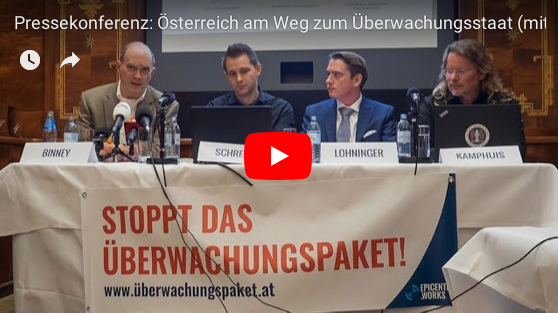
…sterreich am Weg zum †berwachungsstaat Cafe Landtmann, Wien, 11. August 2017 William Binney time: 15:01 My sense of all of this is that this is a failed policy, supposedly for intelligence, it's supposed to stop terrorist attacks-, that's been the justification for it from the beginning. It's been a lie that they've been saying, in the US, anyway, where it started, that you have to give up privacy for security. In fact, what that meant was that you gave up privacy and you got no security. In fact, all the attacks that have been committed since 9/11 and even before 9/11 were involving people who were already known by either the police or the intelligence or both. So they should have been following them with a disciplined focused approach instead of doing this bulk acquisition on everybody. Then they would have had a chance to stop this. |
|
time: 46:05 You're getting me here in my scholarly research mode, my political mode as addressing the question of "does the public and the scholars in general understand as I see it from my perspective, what was going on here". I'd say: No, these scoundrels -now I may sound in the tone of voice as though I regarded those as happy-go-lucky funny scoundrels. No, they are mass murderers that we are talking about. [Chapter 6 of The doomsday Machine - Confessions of a Nuclear War Planner, excerpt)] Sorry when I ever smile on my face here when I say this. The point of our discussion is that I'm saying "This is fucking life!" Not that it's acceptable. It's horrible, it's why the human species is drifting toward extinction, that is why we are drifting toward extinction. Do I feel happy about that? No. We are having an intellectual discussion in here -for a moment- of why I think the way I do, and my joking here is a way of fighting off despair. |
I would guess, not just Americans, but people, officials, people who identify with the government, who are privileged, who say ÒweÓ when they talk of the government. ... TheyÕll go along with anything to keep that, to keep from being fired. Anything, and I mean, nuclear war. |
This is a failed policy because they are dumping so much data on their intelligence analysts and police that they can't get through it to discover the threat in advance and therefore can't stop it. If for example you took all of the intelligence agencies in the US, UK, Five Eyes, and other countries that are participating in this bulk acquisition of data, gather all the analysts together, there are about 20 000 analysts. So you have to distribute them over the set of targets they are looking at, which is the whole population of the world - approximately 4 billion people who are using cell phones or any other electronic devices or credit cards, things like that - so if you divide that out, each of those analysts has to look at 200 000 people. That's impossible, and that's why they are failing. |
|
|
... [under President Nixon] we would have seen nuclear weapons used on humans for the first time since Nagasaki in November of 1969, actually. Which was when his [Nixon's Vietnam] ultimatum expired. Except for the fact that 2 million people on October 15th did what was amounted to a general strike ... taking off from work, no business as usual. And from schools, and going into public squares, and rallies and everything, asking for an end to the war. They did not know that there was an impending nuclear strike that had been threatened, and which I believe would have been carried out. But when Nixon saw that many people in the streets, he knew: If I use nuclear weapons now, not just in threat but on people, the first time, we wonÕt see 2 million, weÕll see 20 million people or more in the streets. And the North Vietnamese will expect it, and they wonÕt give in, they will wait for that to have its effect. So he didnÕt do it. |
They're also not doing the right analytic approach on the data they do collect. They are using a word search type approach which simply goes across and produces some kind of Google approach, Google output. You know you get thousands, tens of thousands or even hundreds of thousands and sometimes a million or more returns. And if you get that kind of amount every day in the collection that's being done, you can't get through it. It's impossible! The other part on the negative side, again, is it invades everybody's privacy. When you collect all of this data on everybody, this means you have information on everybody on the planet and invade their privacy in virtually every way possible. |
|
Daniel Ellsberg On The Pentagon Papers to Donald Trump: What have We Learned? (MTP Daily), 22 Dec., 2017 The government is the servant of the people ..., not the people are the servants of the government. So the governor, the public, has a right to know what is being done in their name, what the decisions are. And government, like all bureaucracies are anxious to keep their decision making to themselves so they can't be held accountable. |
Those people, - without even knowing what they were doing, the effect they were having, almost virtually any of them, virtually any of them - the next month, in November, were in fact prolonging the moratorium on the combat use of nuclear weapons by another 40 years and more. So, on the one hand it was unlikely that they would have that success, and they didnÕt know they were even having it; but by resisting what they did see, which was a prolongation of the war that should not happen, they acted appropriately. Which is, they stopped business as usual. |
Now, there is a positive side to that: That means you have leverage on everyone on the planet. You use it to get members of parliament, every government of the world, wherever you want, because you've got the dirt on them, you've got information on them. In other words: It gives them the power to control the population. And also they use that data in the United States. There they are already doing that for common crime inside the United States. They are using it to arrest people, and then they have to do a substitution for that data in the court of law, because that data is not admissible, because it was collected without a warrant. And so they're perjuring themselves in the courts of law. |
|
|
That could happen again. I think nothing less than that will protect us, actually, from war with North Korea, war perhaps in Syria or Ukraine. And war with Russia, which is a real possibility over Ukraine, should not be on the table. Because war with Russia is very different from war with Vietnam or Iraq or Iran. It means almost surely escalation to nuclear war, which leadsÐand this is another factor in my book [The Doomsday Machine - Confessions of a Nuclear War Planner Ð we now know leads to nuclear winter. The diminution of sunlight by the smoke from burning cities, which will kill harvests and starve nearly everyone on earth. |
They are spreading this around the world because all the countries that have relationships with the FBI, the DEA [Drug Enforcement Administration], they are getting this information from them also. But they don't get the raw data because they can't use them in a court of law. So it's perjury. They are committing perjury and destroy our entire intelligence and judicial process. The foundations of democracy are being destroyed here. Privacy is lost, any type of legal process is lost, because it's subverted at the foundation by this process. It was started in the United States -basically for money, because it takes a lot of money to do this, and the military industrial complex needed a lot of money, they wanted to grow, get bigger, and have more control of the people, and this was the way to do it. And then they convinced other people, like the other Five Eyes, the Brits and others, to follow them, and they followed and then everybody else in the world started to say "well, we should follow the US because they know what they are doing" when in fact they don't. |
|
|
So what the book shows is that our leaders, one of the things that they have needed to keep secret is that they have been consciously gambling with the possibility of ending most life on Earth all this time. And they should never have been doing that, and one instance of that was actually Vietnam. |
|
|
|
It also came up again three years later, in Ô72 [more precisely: April 25, 1972], when Nixon considered nuclear weapons and said to Henry Kissinger [page 418 in Daniel Ellsberg, Secrets: A Memoir of Vietnam and the Pentagon Papers], "No, IÕd rather use the nuclear bomb. Have you got that, Henry?" You know, even Kissinger said in Ô72, "I think that would be just too much." He [Nixon] said, "The nuclear bomb, does that bother you? ... I just want you to think big, Henry, for Christsakes." And that was the president of the United States. That was before the landslide election that brought him into reelection. That sentiment and that readiness did not keep him from being reelected. And thatÕs the danger, as we all know, weÕre facing now with the current president.
|
And so we all adopt this failed policy across the democracies of the world. I call this a "metastasizing malignancy" because it's spreading around, destroying democracies of the world. What they are doing adopting the process many countries don't realize what it entails. It entails a large expenditure of funds and also a large effort in terms of numbers of people. But it gives also central power to anyone government over their population and central power to the United States because they got power and knowledge on everybody in the world. |
|
|
|
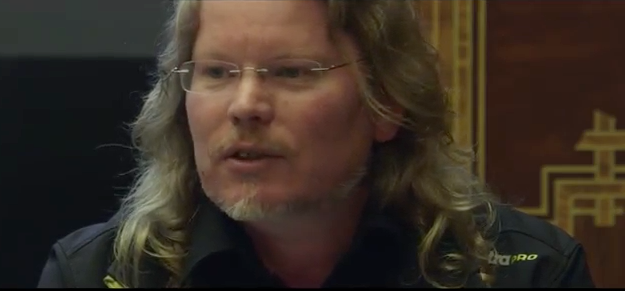
Arjen Kamphuis time: 30:57 Also, thanks to Bill and even before Bill Duncan Campbell's basic journalistic work we know -and since Snowden for absolute sure- that all United States information technology products and services have backdoors for various intelligence agencies including the NSA and CIA. The[se] "kill switches" in those products are actively being used to be able to switch off countries. And that's not just countries like Iran or may be North Korea, but it's also countries like Austria. All modern countries using American information technology products are under an American kill switch.
Everything in your society runs on chips, from the logisitcs in your supermarkets to the energy infrastructure, to hospitals, to everything your government does. If somebody foreign can switch that off, -it's now the Orange King in Washington who controls the off switch, he tends to have some impulse control problems and may be this is worrisome-
Because the secrets of those backdoor are now out on Wikileaks and are now in the hands of dozens of other parties including again criminal organizations, you can now switch off countries at will if they so desire. [By the way,] it's better to thieve a country empty than crash its economy.
Running on these kinds of technologies is a big strategic risk to the basic physical and economic well-being of Austrian citizens. So again, the question to the government should be four years after Snowden gave us very clear and documented proof of these problems: why are we continuing to do this? Why do we continue spending 15 - 20 billion Euros of our money to buy foreign spyware that can destroy our societies, instead of using that [money] for creating 350 000 IT jobs in Austria and build our own technology and then be in charge of our deciding, as a soverign society should be?
|
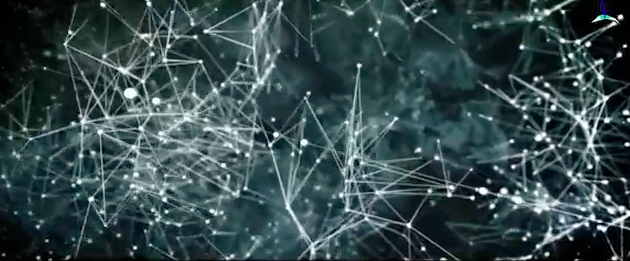
a Friedrich-Moser-Film, Nov. 2016
William Binney: "With Thinthread was a program that absolutely would have prevented 9/11."
William Binney: "When I found out about all the things that we were doing as a result of 9/11 and I heard Vice President Cheney's statement about 'we have to go to the dark side', I looked at it as a total destruction of our society, and we lost all moral standing in the world as a result of going to the dark side." |

NSA Whistleblower Bill Binney, and His Ordeal William Binney on the Tom Woods Show, 1 November 2017 (transcript) What I was doing with Ed Loomis in the SARC (NSA SIGINT Automation Research Center) was putting together an automated process that would look at the entire world wide communication systems and decide what in there was important for analysts at NSA to look at, to start reporting on activities or threats from criminal organizations world wide or militaries or any leadership or anything. So the objective was to make sure that we got all of that data and not bury our analysts with other kinds of data, which they - back in the 1990s and before they had the capacity to do a lot of the collection of data - they were even buried back then. And so it was an effort to make them functional again. |
|
||||
|
Amsterdam We are on a mission to help organisations achieve control and confidence about the knowledge and insights they extract from the ever-growing sources of data. Technology capabilities, legal considerations, moral dilemmas and consumer preferences are changing at a pace which requires a new way of thinking to comprehend. Your people, your solutions and your partners need to constantly improve in order to solve the problems of today and lead the market with the opportunities of tomorrow.
KNOWLEDGE by design
PRIVACY & SECURITY by design
SOLUTIONS by design |
[my comment: Fig. 2: It constructs communication pattern of people, anonymizing US citizens (example: node to the far right). Known terrorists are connected in the pattern "Known" (red in Fig. 3). Fig. 3: ThinThread finds and connects "Suspects" (yellow in Fig. 3), i.e. persons connected via 1 or 2 hubs ("degrees") with "Knowns" and discards the rest ("Unknown", blue in Fig. 3). Fig. 4: The analyst decides which part of the global networks he considers relevant, pulls it out and receives the corresponding communication content and its timeline. In essence, any recognition works that way, regardless of circumstances and species. In order not to be overwhelmed by the amount of information, characteristic patterns in space and in time are sought and compared with previously encountered ones. The procedure is used by micro-organisms, between people, by the immune system, in our neural system, our mind: To regognize something, we compare the new pattern with ones we have found the most helpful ones in similar circumstances. Before we know the details, we say: "This looks like a book." In his model (Theory of Neural Group Selection, in cache). Gerald Edelman calls this "selection based on neural Darwinism". For more details see Friedrich Moser's film "A Good American" or trailers of it.]
|
|
||||
|
…sterreich am Weg zum †berwachungsstaat Cafe Landtmann, Wien, 11. August 2017 William Binney time: 34:26 [There is a alternative to mass surveillance.] Actually we invented it [ThinThread] before 9/11, but the government rejected it because it didn't cost enough. It only cost us $3.2 million to develop and they wanted multi-billions to do the internet and move foreward in the digital age. I think, eventually they spent in the first 10 years something like $8 billion total on the programs they ran and all of them basically failed. The approach we took was a targeted approach which included target development or development of new people participating in criminal activites or in government operations. It was basically built on behavior properties of people and what you could infer from the transactions they were operating on the internet and also the telephone network. What it simply meant was you followed people.
The first two, the deductive and inductive approach, would have gotten every terrorist involved in every terrorist attack from here all the way back to even before 9/11. That's the targeted approach, and it gives privacy to everybody because you don't take any of the rest of data in. All that data passes by. None of that data is stored by any government. It's actually succeeding against terrorists or any other targets, but my government started all this stuff because it didn't cost enough and they wanted to spend a lot of money. Question: Do you know of any technology that does that with the same characterisitics? William Binney: Yes, a couple of countries, one in the Netherlands and one here in Austria, who are involved in that and starting to develop programs with the targeted approach. I think they are going in the right direction. I don't know how much we want to say about it. I don't think they are operationally ready yet, but they are certainly going to be in the near future, I think so. Question: So what you are saying is, there is a technology in place in Austria. William Binney: Yes, and as well in the Netherlands, yes, both places.
|
A Complex World From a Virus Point of View Peter M. A. Sloot .png)
Societal as well as microbial networks tend to be scale free, which means that with one parameter I can describe the network. time: 37:24 in video simulation of the emergence and development of a scale free network (preferential attachment, meaning "the rich get richer") shows network properties:
Thus all disciplines dealing with networks, like sociology, politics, biology, immunology, neurology and information technology, can learn from each other.
|
 Wilson's Ghost: Reducing the Risk of Conflict, Killing, and Catastrophe in the 21st Century. New York: Public Affairs, 2001 by Robert S. McNamara and James G. Blight, 2001 page 5 The Imperatives: Moral and Multilateral The conflicts of the past 100 years have two fundamental messages for us now, as we confront the first century of the new millennium, both of which are derived from the tragedy associated with the First World War and its aftermath, including the Second World War, the Cold War (including the Korean and Vietnam wars), and the brief post-Cold War era. These messages are best conveyed in the form of two "imperatives" that should shape U.S. foreign policy and defense policy in the 21st century. They are:
Establish as a major goal of US foreign policy, and indeed of foreign policies across the globe, the avoidance in this century of the carnage - 160 million dead - caused by conflict in the 20th century... page 32: Here is our outline of the Kantian calculus for resolving moral dilemmas:
Recognize that the US must provide leadership to achieve the objective of reduced carnage but, in doing so, it will not apply its economic, political, or military power unilaterally, other than in the unlikely circumstances of a defense of the continental United States, Hawaii, and Alaska. Wilson, facing the immediate aftermath of the First World War, believed that acting on each of these imperatives was a necessary condition for preventing the world from sliding into ever greater catastrophies. The subsequent bloody history of the 20th century shows that Wilson was right to believe this.
... We hope to encourage a debate on these imperatives, and related measures - a debate that may lead to success where Wilson failed.
The Fog of War: Eleven Lessons from the Life of Robert S. McNamara by Errol Morris, 2003
Towards Simulating the Foundations of Society Dirk Helbing, Computational Social Science, ETH-ZŸrich, 2011 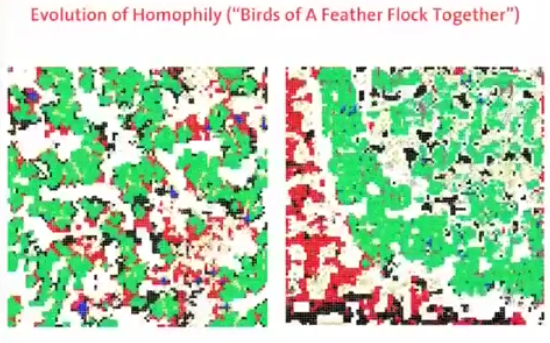
Developments in and properties of a self-organizing (rather than centrally organized) society:
|
version: 27.2.2018
Address of this page
Home
Joachim Gruber